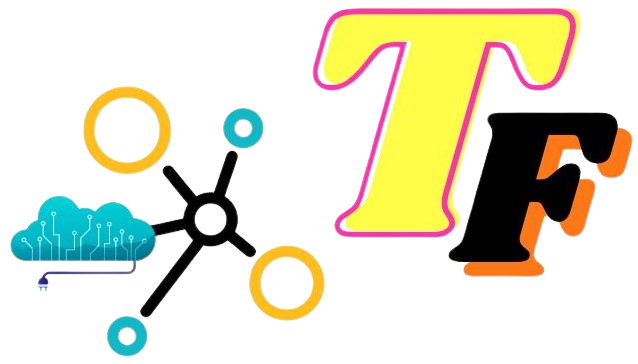Table of Contents
Introduction 5G Technology
In this article, we will have studied the transformative capability of ‘what is 5G technology’ in India and its impact on various aspects of our lives. From modifying communication and networking to speeding industrial developments and improving public safety, 5G promises to launch in an entirely novel period of possibilities. Let’s explore the world of 5G and see how it will change our future.
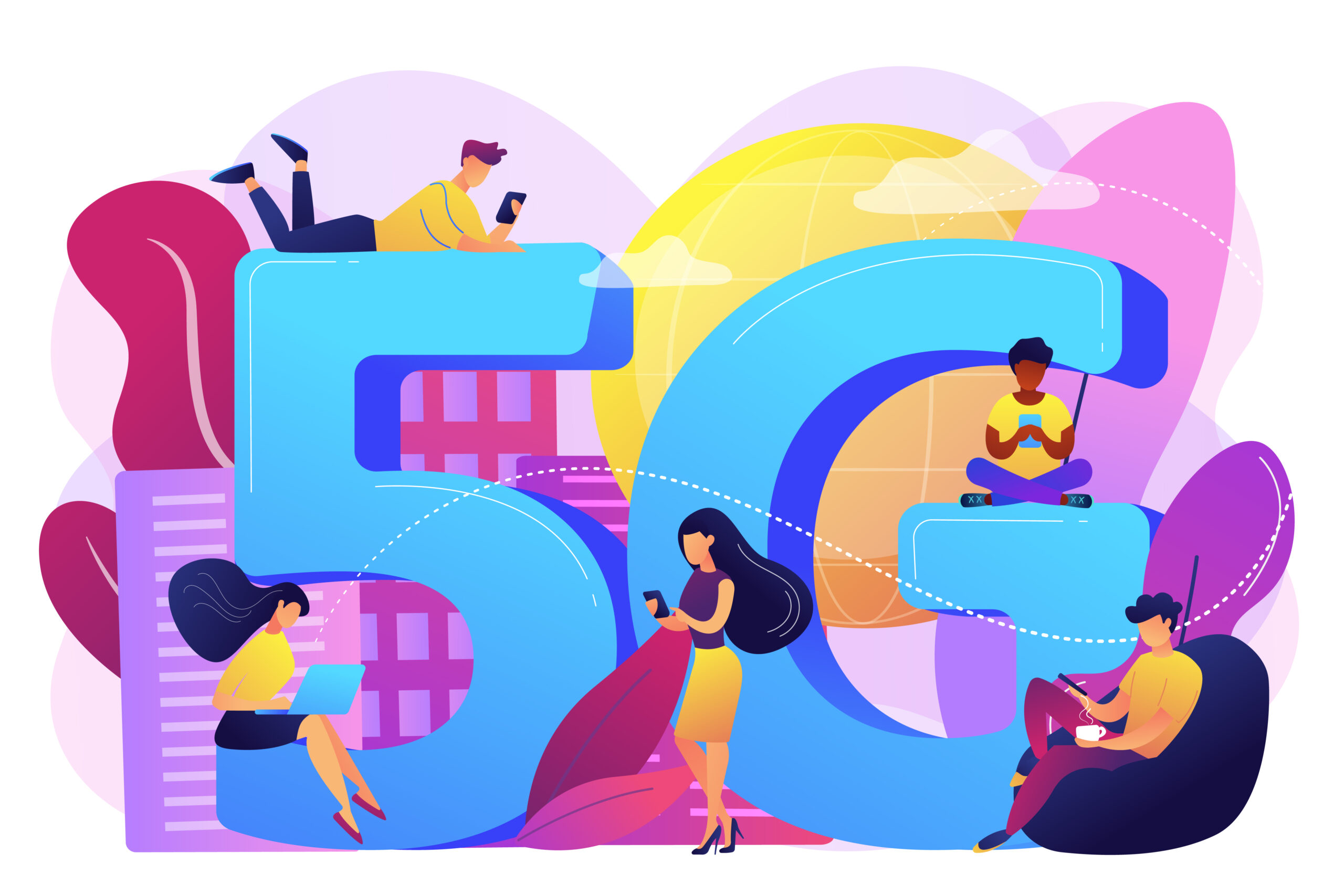
Understanding of 5G Technology
• Definition and how 5G Technology works?
5G technology is a fifth-generation wireless technology and the most recent version of cellular network technology. In comparison to its performance, it provides fast speeds network speed, lower latency and more efficient than others. 5G operates on higher frequency bands, utilizing advanced wireless technologies such as millimeter waves and massive MIMO (Multiple-Input Multiple-Output) to transmit data at lightning-fast speeds.
• Comparison with previous generations of wireless technology
While 4G networks typically offer download speeds of around 100 Mbps, 5G networks can provide speeds exceeding 1 Gbps, enabling seamless streaming, faster downloads, and improved performance for various applications. When compared to earlier generations such as 4G or LTE, 5G represents significant improvements in terms of speed and connectivity.
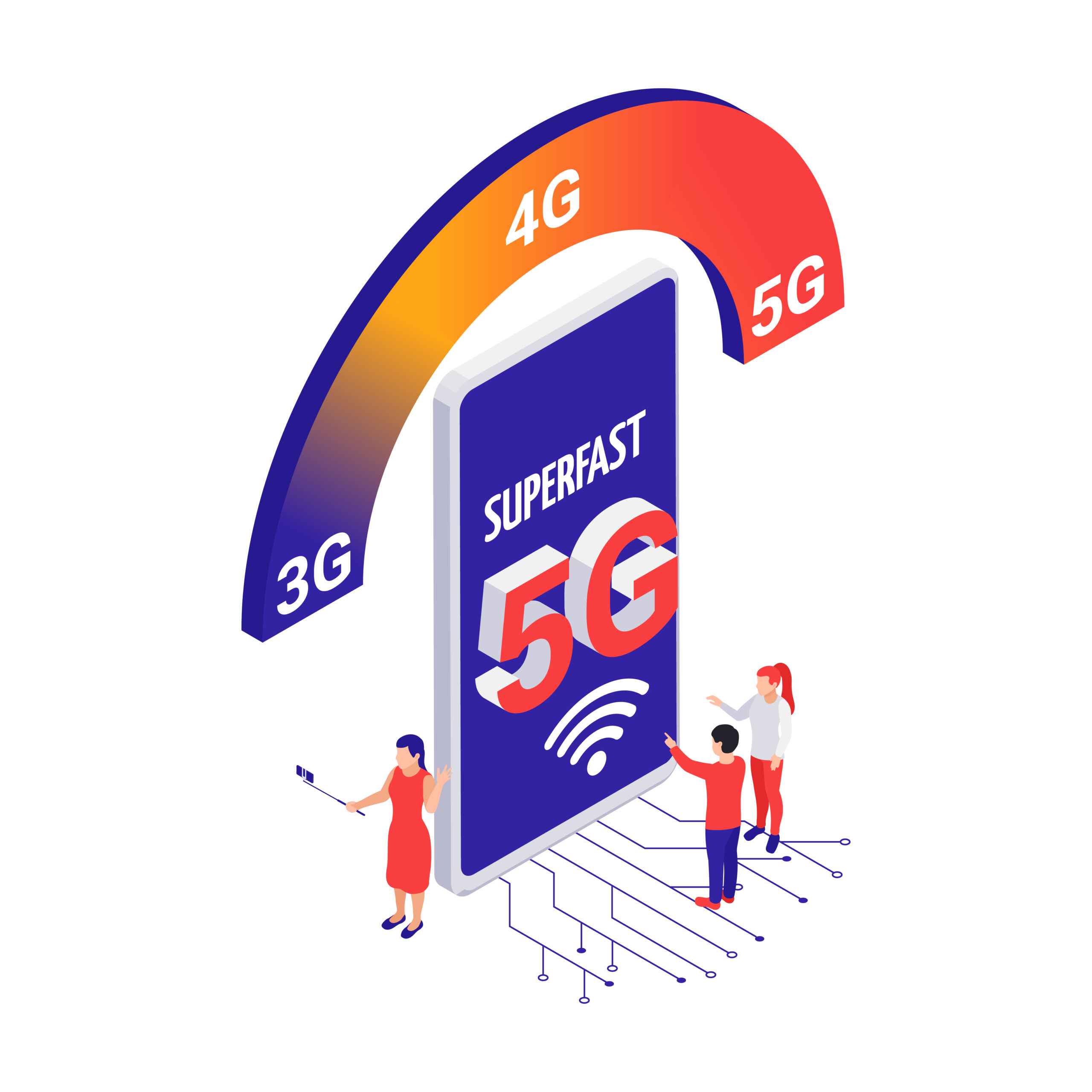
• Key features and benefits of 5G technology
The key features of 5G technology is that go beyond speed. One of 5G’s great advantages is its capacity to support huge device connectivity with little latency. This means that we can connect more devices at the same time, the reaction time between devices and the network will be greatly decreased. 5G provides expanded network capacity, improved dependability, and increased efficiency, making it more important to variety of industries.
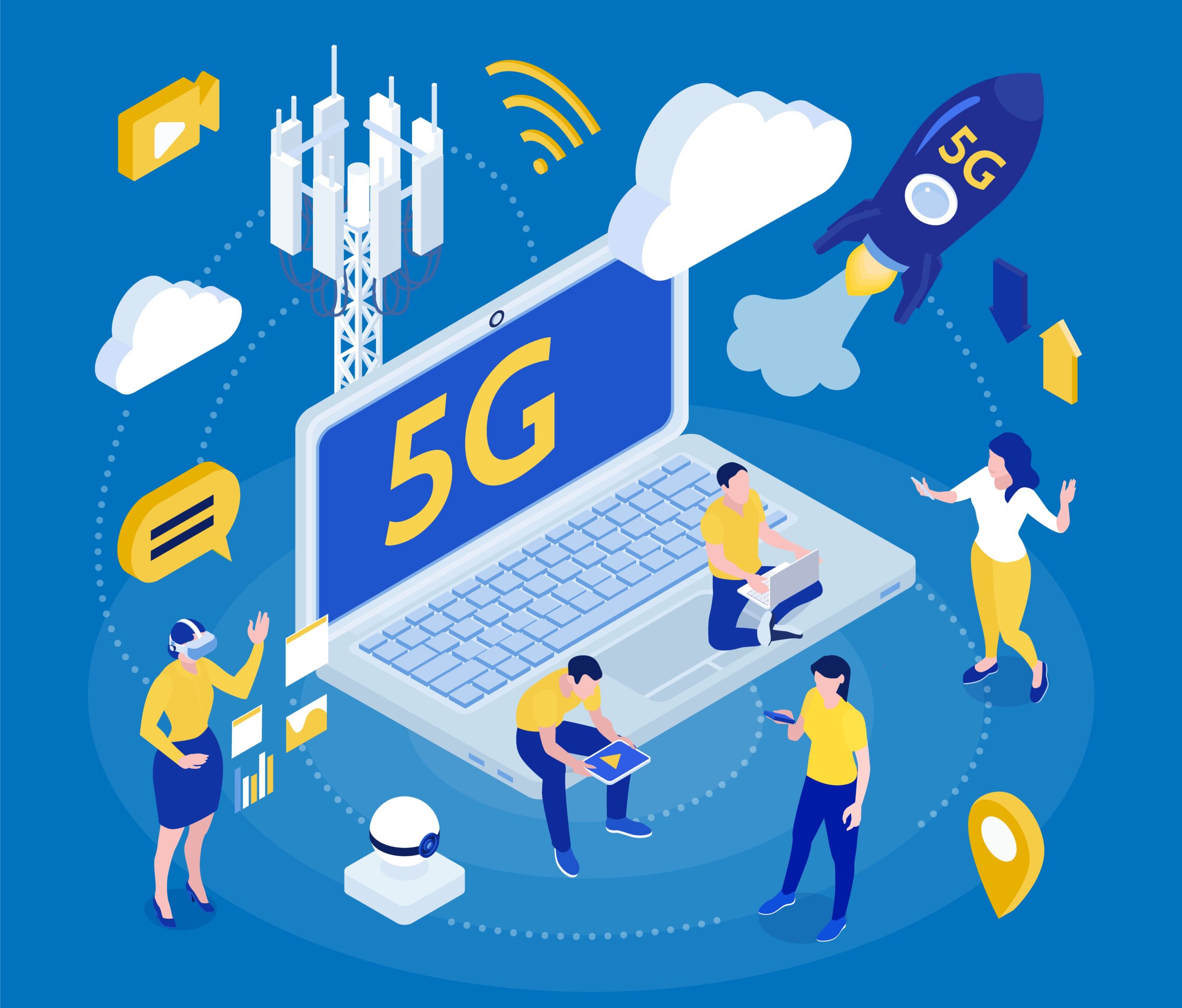
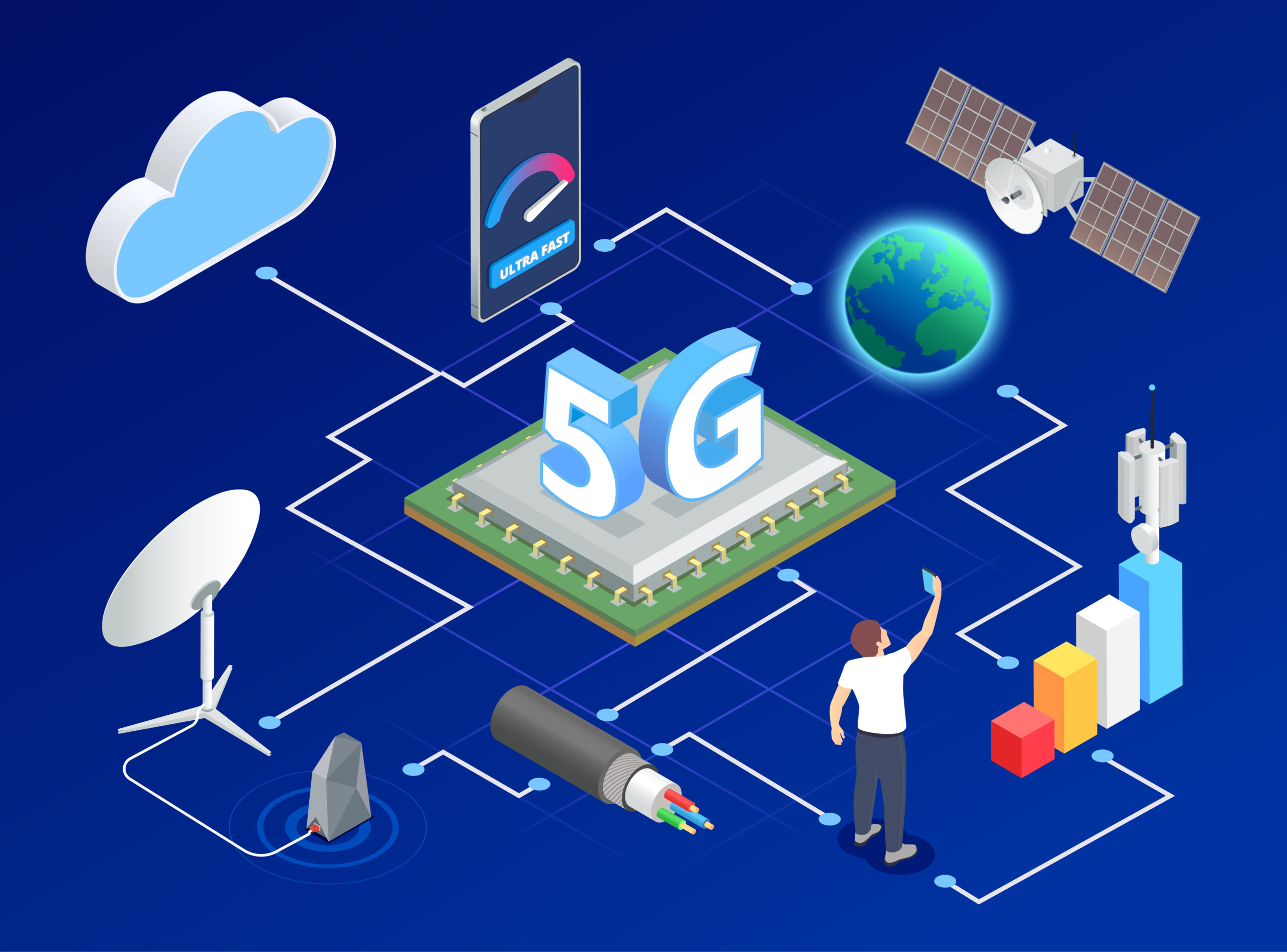
Modification of Communication and Connectivity
• Lightning-fast download and upload speeds
With 5G, the days of long buffering times and slow downloads are over. Downloading large files, streaming high-quality videos, and sharing content will be nearly quick because to its excellent speeds. This increased speed will help us to work more efficiently, access information more rapidly, and live our lives with continuous connectedness.
• Significantly reduced latency
The delay between giving a command and receiving a response is referred to as delay. 5G enables real-time interactions and apps that require immediate reaction times by reducing latency to milliseconds. It unlocks the door to mission-critical applications like autonomous vehicles, remote surgery, and smart city infrastructure, where split-second decision-making is important.
• Enabling virtual and augmented reality experiences
Virtual reality (VR) and augmented reality (AR) have the ability to transform entertainment, education and a variety of other industries. However, the limitations of current networks have hampered their greater acceptance. The ultra-high speeds and low latency of 5G will offer the infrastructure required for these technological advances. Imagine being able to attend live concerts, tour collections, or participate in remote training sessions using virtual and augmented reality in a smooth and responsive manner.
The Internet of Things (IoT) is a network in which multiple devices are connected with each other to communicate and share data via the internet. These devices include everything from smart kitchen gadgets to smart watches and industrial equipment. The IoT has changed the way we interact with technology by connecting multiple devices and allowing for wireless communication. In this post, we will look at how 5G technology advances IoT capabilities by promoting outstanding connectivity and opening an infinite number of possibilities.
• Importance of Connectivity in the IoT Ecosystem
Connectivity lies at the heart of the IoT the natural world, allowing devices to easily share and analyze data. IoT devices is running as very more smoothly with greater connectivity and allowing for automation and smart functionality. 5G technology in India is the most recent generation of wireless communication networks, after 4G. It provides faster speeds, lower latency and increased capacity, changing how we connect and involve with the digital world.
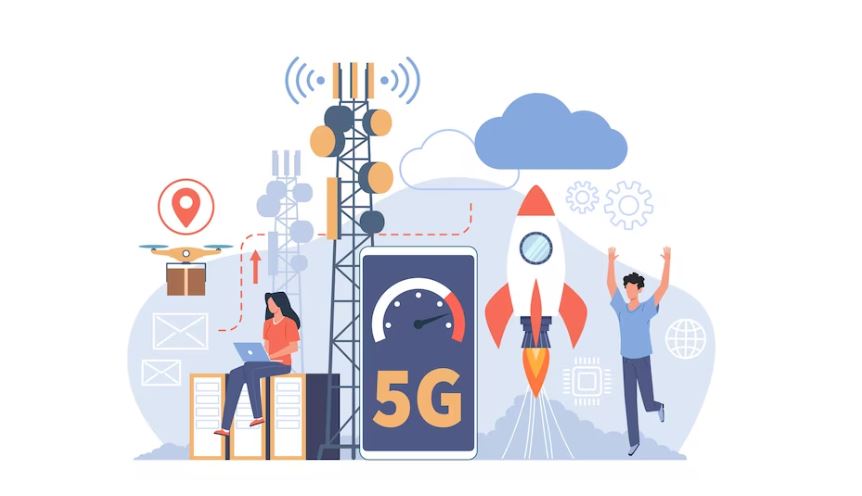
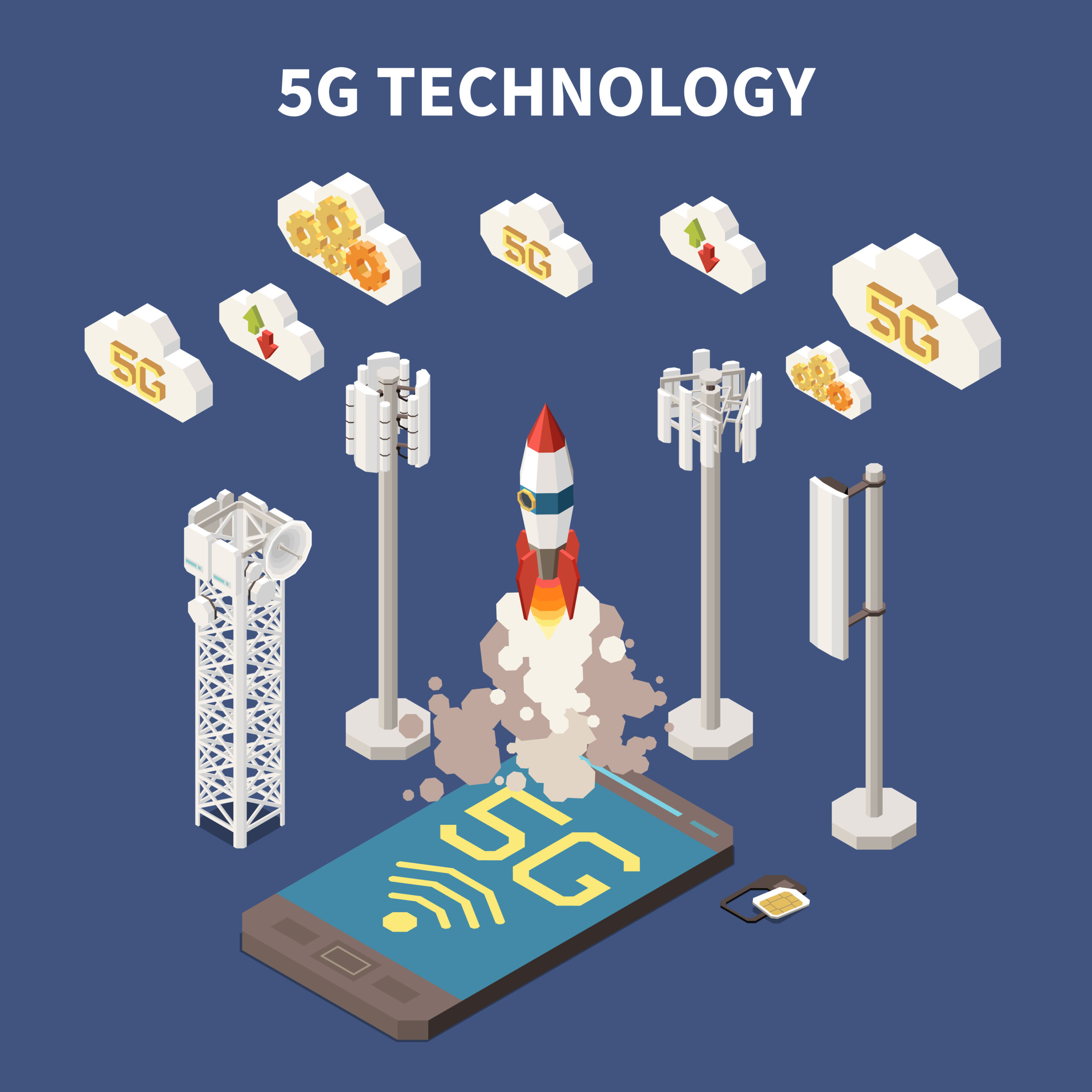
To realize the importance of 5G technology in increasing IoT, it is necessary to understand its progress from previous generations as well as its major features and capabilities. 5G technology develops on the groundwork established by its previous innovation, 3G and 4G. While 3G allowed for mobile internet access, 4G increased data transmission speeds and 5G accelerates this trend by providing faster speeds, lower latency and increased network capacity.
Transformation in the Industries
• Enhancing healthcare systems and services
By providing telemedicine, remote patient monitoring, and real-time data transfer, 5G has significant promise for changing healthcare. Doctors will be able to perform complex surgeries remotely thanks to the low latency and great reliability of 5G networks, and patients in rural places will have access to specialist healthcare services. Wearable devices and sensors can also continuously monitor vital signs and securely transfer data, resulting in personalized and proactive healthcare solutions.
• Modification of transportation and smart cities
With 5G technology, transportation is set to experience a major revolution. Connected can be communicate in real time with traffic infrastructure and other vehicles, which improve traffic flow, reduces accidents and improves overall transportation efficiency. The smart cities will use 5G networks to develop advanced technologies for energy management, garbage collection, public safety and other purposes, ultimately improving urban living area quality.
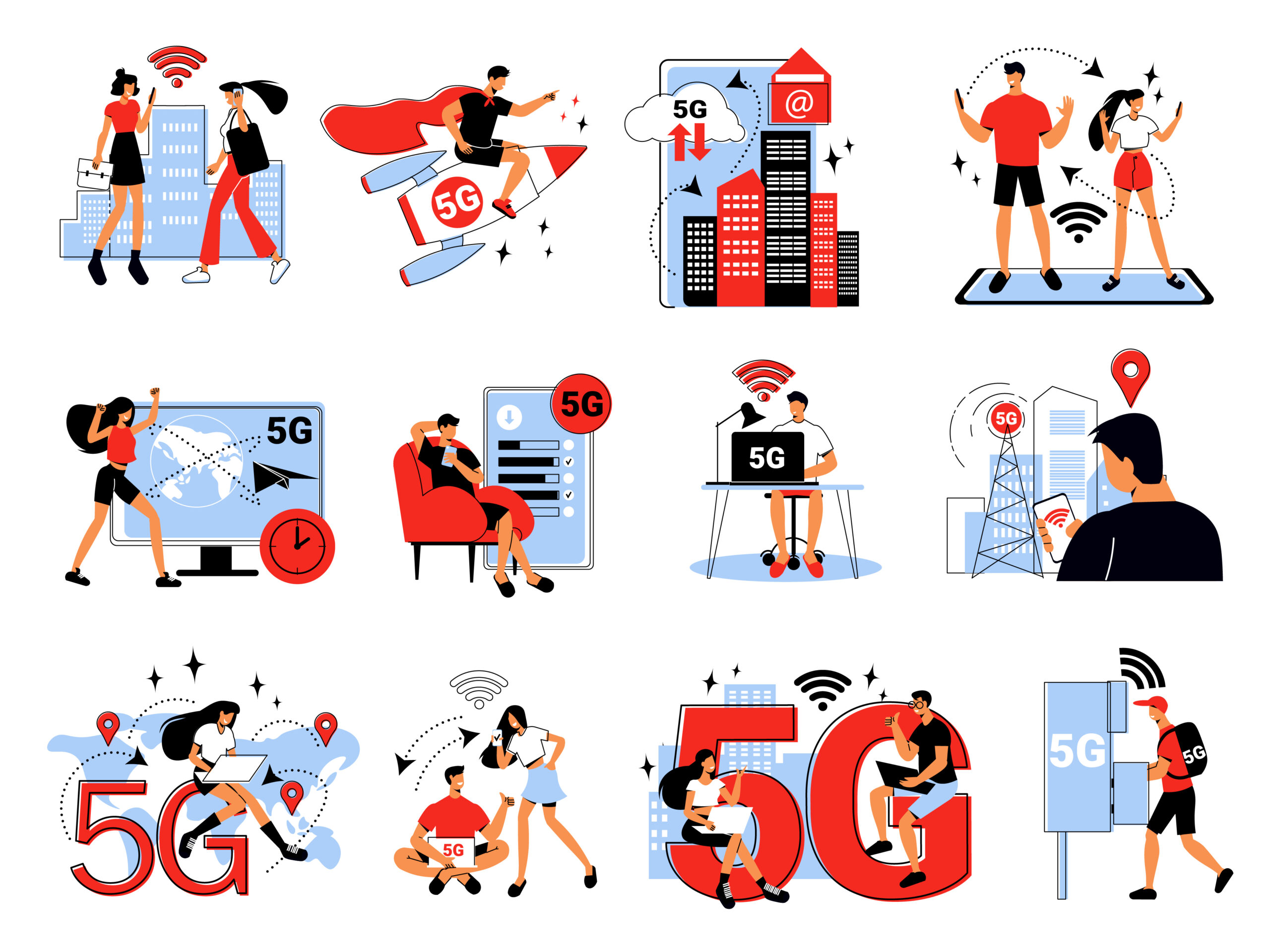
• Powering advancements in manufacturing and robotics
5G will speed up the growth of automation and robotics in industries such as manufacturing. Factory automation allows them to streamline production processes, increase efficiency, and reduce downtime by seamlessly connecting thousands of devices. Robotics and artificial intelligence will collaborate to do jobs more effectively and precisely. This will transform industries ranging from automobiles to electronics, resulting in speedier innovation and economic growth.
• Fueling breakthroughs in agriculture and farming
The agricultural sector stands to gain greatly from the adoption of 5G technology. Farmers can monitor crop health, irrigation systems, and soil conditions in real time thanks to greater connection and smart sensors. This will give permission for data-driven decision-making, precise resource allocation, and more efficient farming practices. 5G-enabled smart farming practices will lead to more environmentally friendly farming, increased harvests, and lower environmental impact.
5G and Digital Economy
• Empowering businesses with faster, more reliable connections
Businesses in the digital age depend largely on fast and reliable connections to execute operations smoothly. Businesses will gain significant competitive advantages from 5G by enabling faster data transfer, real-time collaboration, and increased productivity. This technology will allow businesses to take advantage of cloud computing, artificial intelligence and big data analytics, resulting in improved innovation and income.
• Unlocking new opportunities for e-commerce and online services
E-commerce and internet services will reach new heights with 5G. Faster download speeds and reduced latency will enhance the user experience, allowing for whole browsing and fast transactions. Virtual reality technologies can improve virtual shopping experiences, when logistics and delivery services can become more efficient and dependable. 5G will change the way we shop, transact and interact with internet services.
• Facilitating global collaborations and innovations
5G networks will connect geographical gaps and boost global collaborations. Data will be shared, tests will be conducted and researchers, scientists and innovators will be able to work remotely in real-time. This will boost achievements in industries such as healthcare, renewable energy, space exploration, and others, influencing humanity’s future through worldwide cooperation and knowledge exchange.
• Enabling remote work and telecommuting
As depend on our work, 5G will have significant impact. Remote work and telecommuting will become more common as connection improves and physical infrastructure is minimized. Video conferences will be seamless, file sharing will be quick, and cross-border collaboration will be simple. Businesses will be access into global talent pools, and people will have more freedom in selecting their work environment, which leads to enhanced productivity and better work-life balance.
Impacts on Entertainment and Media
• Enriching mobile gaming experiences
Mobile gaming is already a large industry, and 5G will amplify it. Mobile games will become more enjoyable, responsive, and graphically attractive thanks to 5G networks’ ultra-fast speeds and minimal latency. Real-time multiplayer gaming can reach never before seen levels of competition and interaction, while cloud gaming services can provide console-quality experiences directly to mobile devices. 5G is set to transform mobile gaming and unlock the full potential of this rapidly expanding market.
• Modification of video streaming and content consumption
Video streaming platforms like Netflix and YouTube have changed the way consume media, and 5G will take this experience to the next level. Users will be able to watch high-resolution content smoothly, even in congested regions, thanks to faster speeds and increased network capacity. Furthermore, because 5G networks have low latency, real-time streaming of live events will be possible, resulting in a more engaging and open viewing experience. 5G will change the way we use and engage with digital material, from entertainment to education.
• Virtual and augmented reality entertainment
The popularity of mixed reality entertainment is growing, and 5G will be the backbone that technology. 5G will give the required bandwidth and speed to provide these deep experiences perfectly, whether it’s exploring virtual worlds, watching live concerts through VR, or enjoying AR-enhanced stories. The combination of technology and entertainment will convert how we interact with media and open up new channels for better expression.
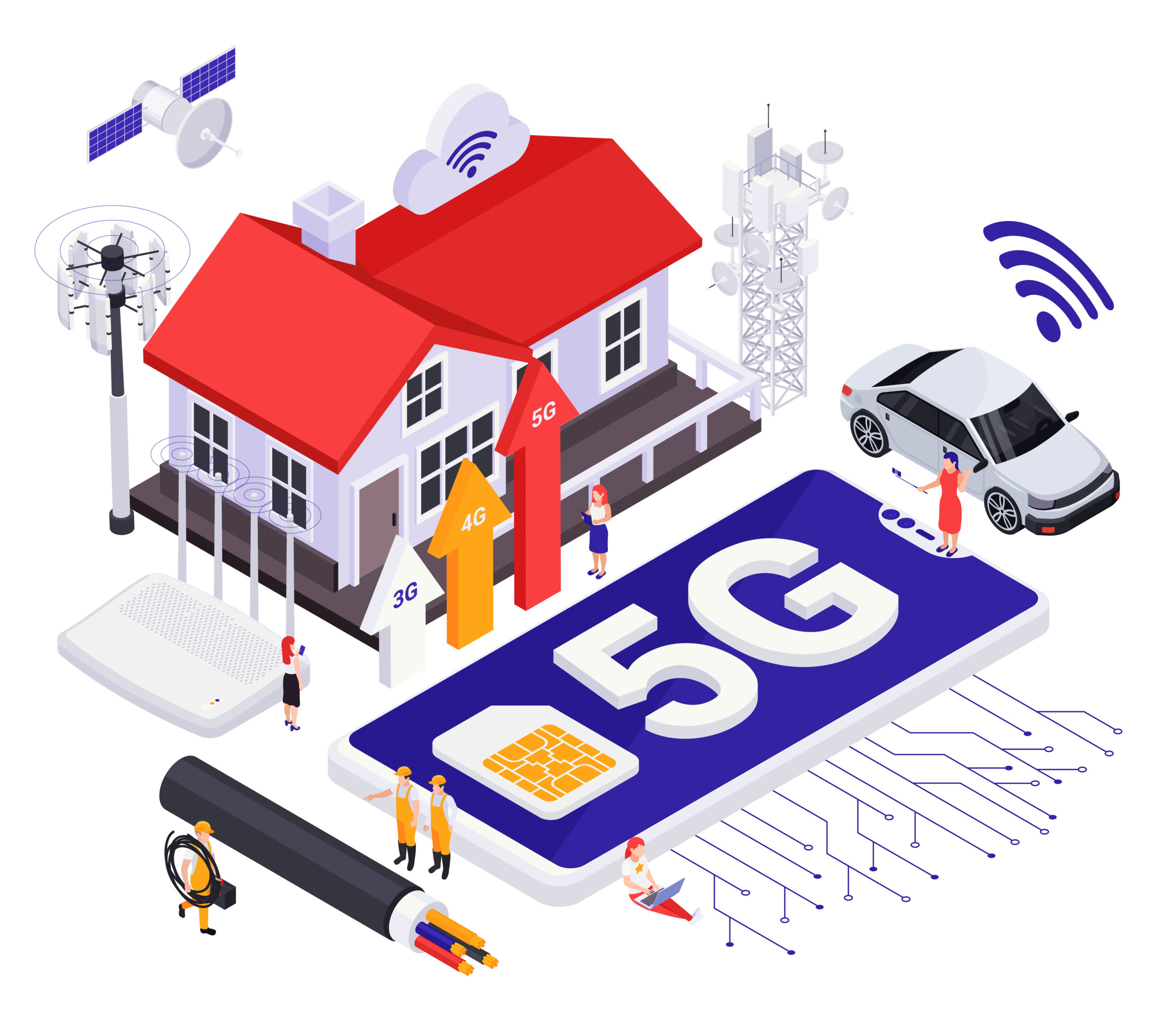
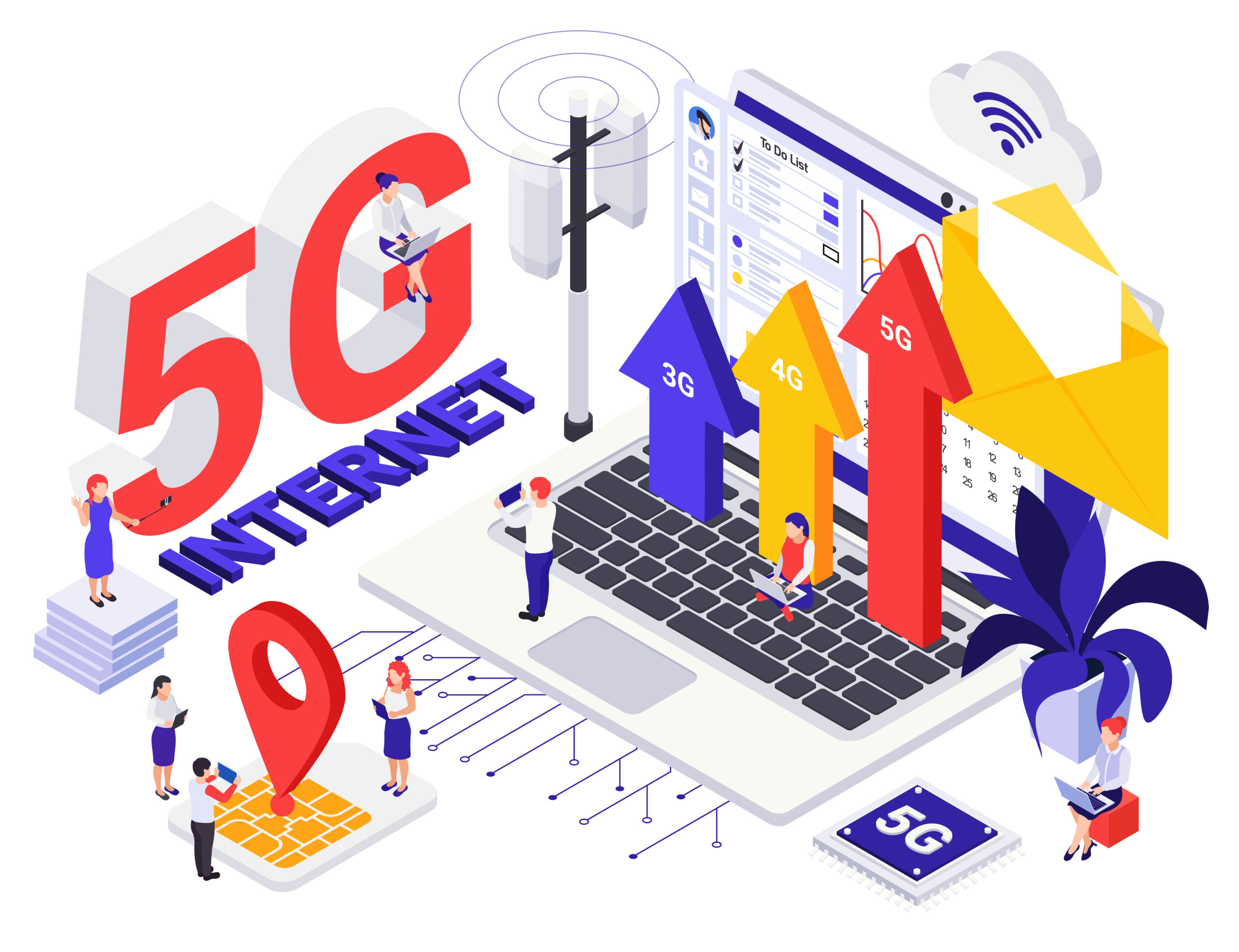
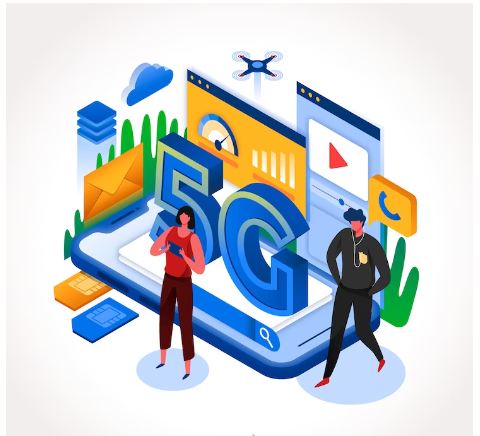
* FAQs :
5G technology is a fifth-generation wireless technology and the most recent version of cellular network technology. In comparison to its performance, it provides fast speeds network speed, lower latency and more efficient than others. 5G operates on higher frequency bands, utilizing advanced wireless technologies such as millimeter waves and massive MIMO (Multiple-Input Multiple-Output) to transmit data at lightning-fast speeds.
While 4G networks typically offer download speeds of around 100 Mbps, 5G networks can provide speeds exceeding 1 Gbps, enabling seamless streaming, faster downloads, and improved performance for various applications. When compared to earlier generations such as 4G or LTE, 5G represents significant improvements in terms of speed and connectivity.
While 5G networks require compatible devices to take full advantage of the technology’s capabilities, existing devices can be connected to 5G networks via adapters or other appropriate gadgets. In order to fully 5G’s potential, it is best to use devices that have been specially created and optimized for 5G connectivity.
The rollout of 5G networks has caused certain health concerns due to increasing exposure to radiofrequency electromagnetic radiation. Numerous scientific investigations undertaken by credible organizations, however, have failed to find conclusive evidence linking 5G network exposure to negative health impacts. To guarantee public safety, regulatory bodies and authorities continue to monitor and study the possible health implications of 5G technology.

